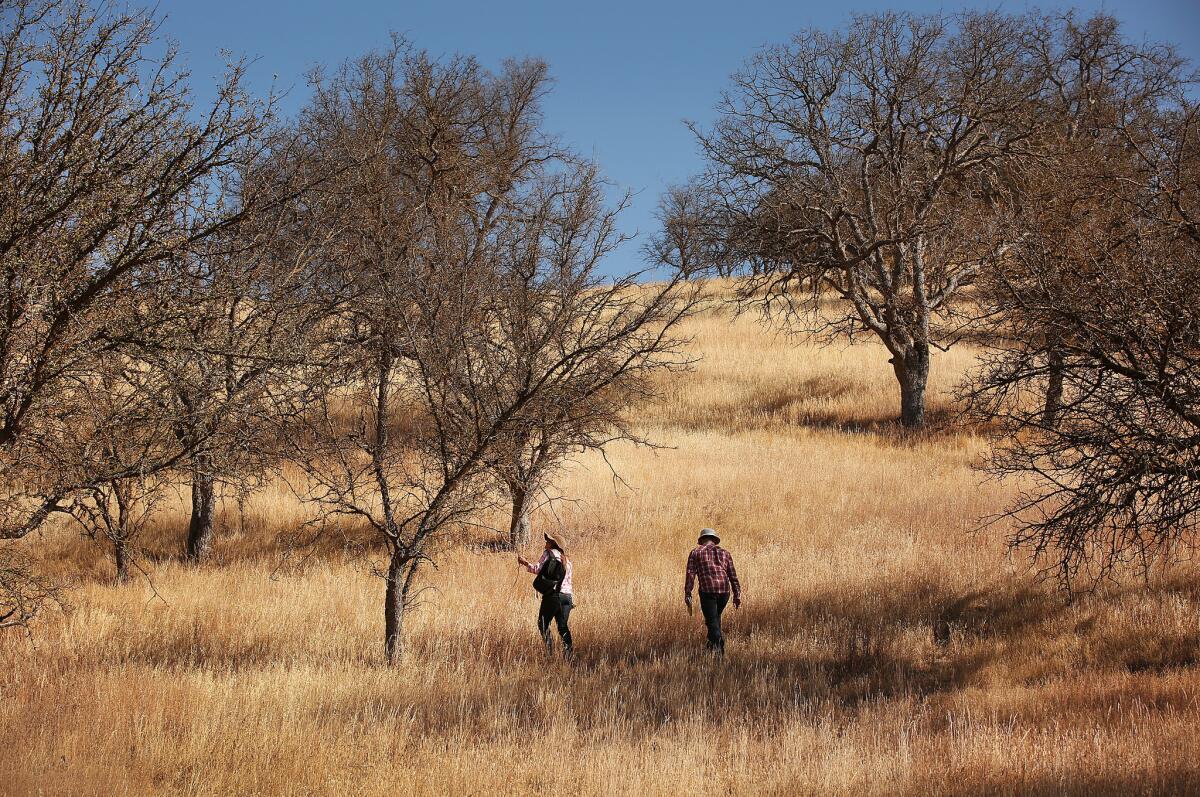Newsletter: Water and Power: What the last drought taught California
Your guide to the California drought from the Los Angeles Times.
NEWS AND POLICY
Conservation figures: Californians saved water in August, though not as much as they had in the months immediately following the governor’s call for a 25% cut in usage. Water officials blame the heat and a lack of rain for the slight uptick in use. “We can’t roll the dice when we’re still in the worst drought we’ve seen,” said Felicia Marcus, chairwoman of the State Water Resources Control Board. “We can’t relax our guard.”
Lessons learned: The San Jose Water Co. is using lessons learned during the 1987 drought to set more realistic conservation goals this time around. Back in the 1980s, water officials required across the board cuts from customers, regardless of how much some customers had already conserved water. Now, the water company is requiring cuts based on the average use of all residential customers.
ON THE GROUND
Water guzzler: The Californian who uses the most water out of everyone in the state lives in Bel-Air. While the homeowner's identity is not public, water officials say the property used 11.8 million gallons of water. That’s enough water for 90 average households. Statewide, 365 Californians used more than 1 million gallons of water over the course of a year.
Farm consumption: The conservation efforts of residents in Livingston aren’t reflected in the state’s water figures, which show the tiny town came in dead last in saving water. That’s because it’s home to Foster Farms, which uses 4 to 5 million gallons of water every day.
Rapids return: An interesting thing has happened with the New Melones Reservoir at 10% capacity -- it’s brought back rapids. “Look downstream, you can see 40 feet above our heads would be reservoir in full season,” said activist Mark Dubois. The rapids disappeared 40 years ago when the Army Corps of Engineers built a nearby dam.
OFF BEAT
The greens: Superintendents are changing the way they seed golf courses. Rather than creating an entirely green course, they’re just focusing on the areas key to the game. “If it is good enough for PGA Tour players, it is certainly good enough for our golfers,” said Jeff Jensen, field staff regional representative for the southwest region for the Golf Course Superintendents Assn. of America.
End for trees: The cherry trees of Lake Balboa may not be around for much longer. About half of the trees have died during the drought and the remaining half are in danger. Once the trees are gone, they won't be replaced. “Pink Cloud cherries in Japan can live for decades. What we’ve found is that Los Angeles is not the ideal microclimate,” said Laura Bauernfeind, head of the Forestry Division for the Department of Recreation and Parks.
BIG IDEAS
“Bees are like cattle, in the sense that the pasture can be overcrowded. And even though we have less forage than normal, it's still more forage than other parts of the state.”
– Beekeeper Gene Brandi on keeping bees in California despite the drought.
"If you look at the history of water management in California, it is a history of droughts and floods and lawsuits."
– Jay Lund, director of the Watershed Sciences Center at the University of California, Davis.
DROUGHT SNAPSHOT
Caption: Researcher Blair McLaughlin, left, and Andrew Weitz, right, walk through Blue Oak trees looking for trees affected by the drought near Shandon, Calif. Al Seib / Los Angeles Times
DAILY TIP
There are a lot of mixed messages out there when it comes to maintaining your lawn and garden during a drought. Here are the five biggest misconceptions about caring for the outdoors:
- It's OK to stop watering your lawn.
- Mature trees do not need water.
- You may only water a set number of minutes a set number of times a week.
- Drought-tolerant plants do not need water.
- You should keep the same watering schedule all year.
LOOKING AHEAD …
Wednesday: The Aquarium of the Pacific will host a photography exhibit that explores mankind’s relationship with water.
Please let us know what we can do to make this newsletter more useful to you. Send comments, complaints and ideas to Alice Walton or Shelby Grad.
Sign up for Essential California
The most important California stories and recommendations in your inbox every morning.
You may occasionally receive promotional content from the Los Angeles Times.









